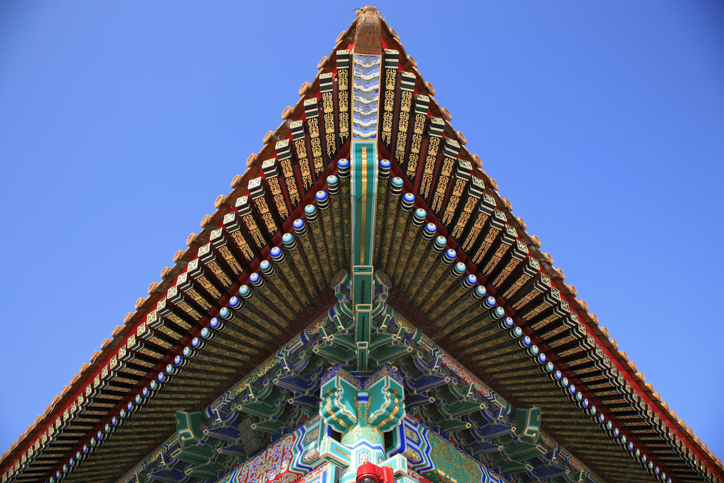
Australia’s discussion of China is less of a debate than two important schools of thought talking past each other.
The values school is predominant, especially in government and the media. It stresses the challenge China poses to Australian and Western values. Rightly, it highlights the increasingly authoritarian nature of the Chinese Communist Party leadership, human rights abuses in China, and the interference and coercion practised by Beijing around the world.
This group believes that dealing with China requires sustaining core values in almost any area where they’re under siege. As such, the focus is on supporting third parties on China’s periphery such as Japan, Taiwan and, to an extent, Hong Kong.
The power school, though smaller, helped to initiate the conversation and has a number of influential contributors. This group stresses that the most important factor is the changing power balance, not just in abstract ‘West versus China’ terms, but between the US$14 trillion Chinese economy and the US$1.3 trillion Australian economy. This group is more circumspect about values, worrying about our capacity to support them abroad without being drawn into a war—a conflict they believe would be determined on the basis of power.
What the values school gets right is that the conflict
is about values. The strategic logic of geography and economics do not necessitate war, particularly between the US and China. Beijing doesn’t seek an empire à la the 20th-century troika of imperial Japan, Nazi Germany and the USSR. Instead, it demands a region that helps preserve the rule of the CCP and the security, stability and prosperity of the Chinese state. Western values such as free speech, the rule of law and democracy are seen to threaten those goals.
What the power school gets right is that, until we recognise the difficulty and scope of the challenge and base our choices on questions of interests and capacity, much of the talk of values is cheap. China wasn’t a threat to Western values when it was weak, and to the extent it has power, we can’t do much about many of its actions and choices—such as the detention camps in Xinjiang.
Where the values school has erred in the last decade is two-fold. First, too many of its members downplay the significance of the challenge posed by China. In documents such as the 2016 defence white paper there’s an implicit assumption that at some point China will realise the error of its ways and
accept a subordinate position in the global order. As if all the West has to do is regain the initiative, add some confidence and stir.
Those who now ring the bell in alarm tend to point to things that are not strategically significant or even directly threatening to Australia. Former Prime Minister Tony Abbott
explains his new position by invoking Xinjiang, the social credit system, Xi’s failure to announce a successor, and the South China Sea. Only the last of those poses a strategic threat to Australia, suggesting a worrying lack of clarity in thinking about the nature and scope of the problem we face.
Second and relatedly, when the proponents of the values school have talked about the challenge, they have conflated Western interests with the status quo. This assumption has guided Western policy over the past decade with pitiful results. In the South China Sea—an area meaningful to China but marginal to the West—Beijing has called our bluff and won. The so-called grey-zone crisis is little more than the pricking of Western hubris, demonstrating that where there’s a lack of genuine strategic interest, there won’t be a serious effort to defend or protect the status quo.
The power school has its own flaws. It is often a narrowly economic view of power, yet if this was all that mattered, the US wouldn’t be in such a poor position as it is today. Power matters, but power is always mediated. Leaders don’t exist without followers, and Beijing, if it is to achieve its goals, needs to have its power and position accepted. In many areas, China has negotiated, compromised and recognised the limits of its capacity. Its efforts to punish have been few and often ineffective. Values, narratives and ideas will matter just as much as money.
Second, the slippery slope is too easily invoked, as if nuclear war lurks behind every contest. Though there are real risks, there’s far more scope for a genuine renegotiation of the order rather than simply choosing between subservience or war.
Both the values and the power schools offer important points, even if both are limited. To a degree, they are rhetorical poses; their advocates are more circumspect and thoughtful when engaged in private. What we need is a way to triangulate the discussion.
I believe that begins with better establishing our priorities. As Australia shifts from a
strategically wandering middle power to a concerned regional power, we need to do much better at clearly distinguishing what matters to us and why. That means not only understanding the
regional crises and their separate trends, but also better understanding our allies and their sometimes diverging interests as well.
Values matter, and so does power. By recognising the strengths and weaknesses of both schools of thought, and moving the dialogue onto the terrain of specific Australian priorities, we may finally have the debate about China that we so clearly need.
 Print This Post
Print This Post